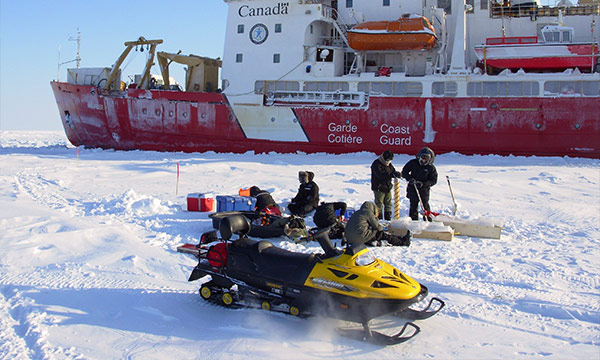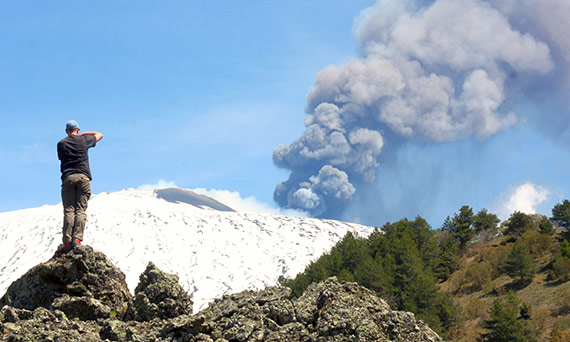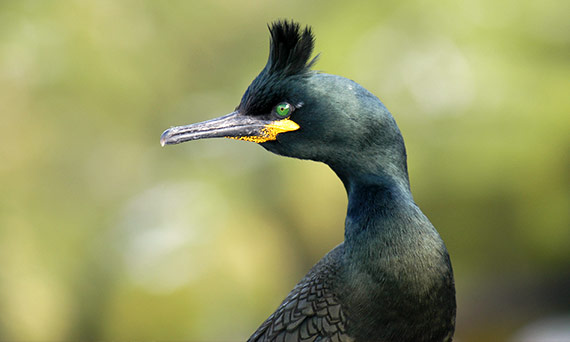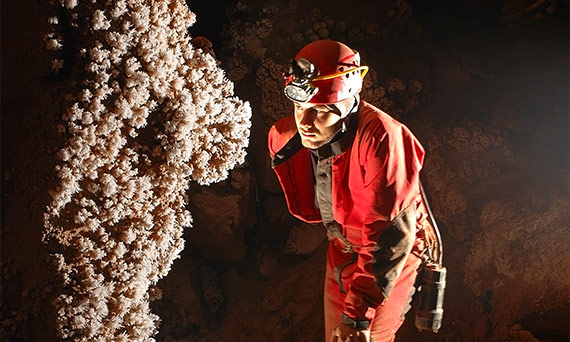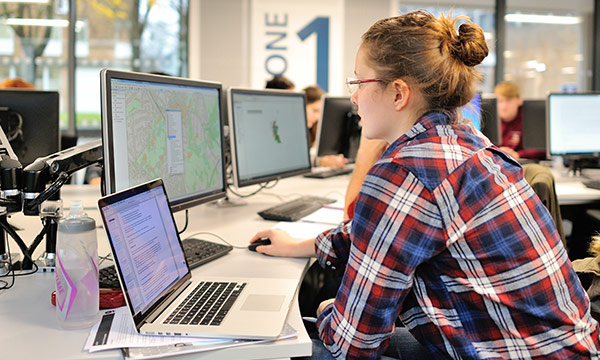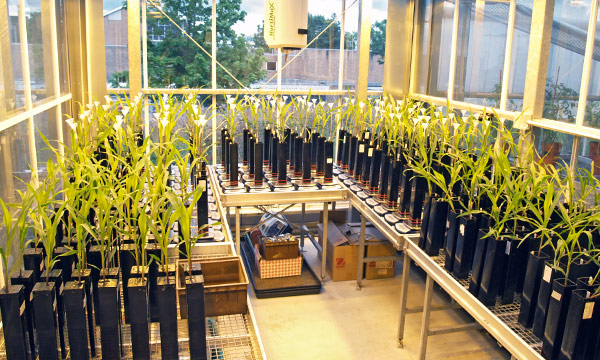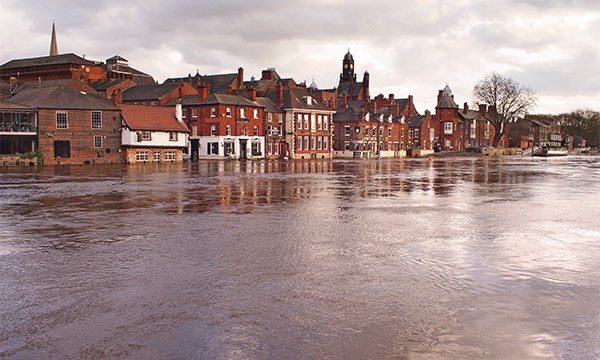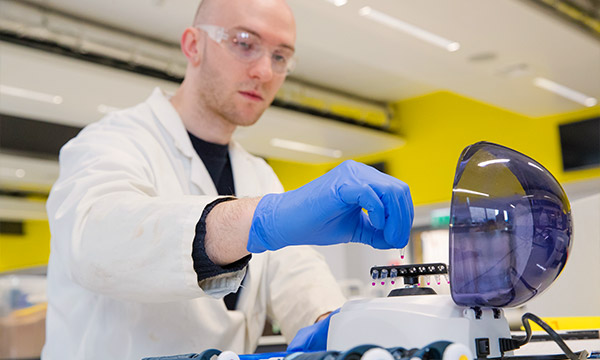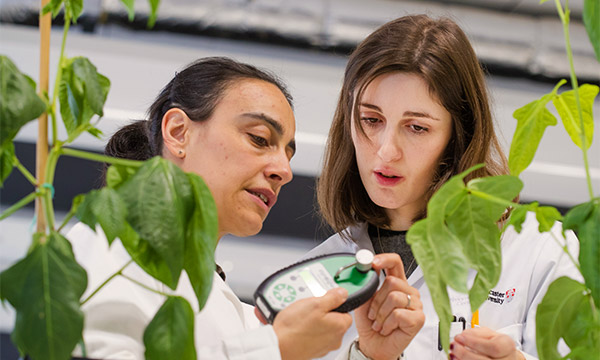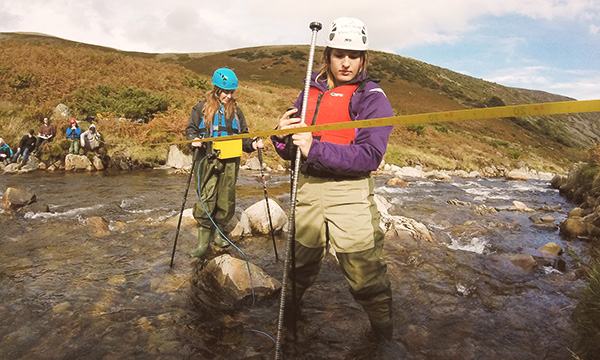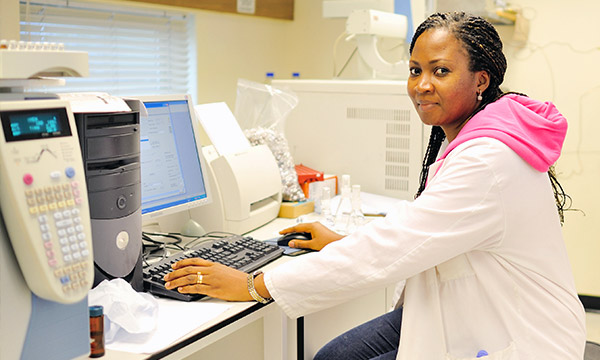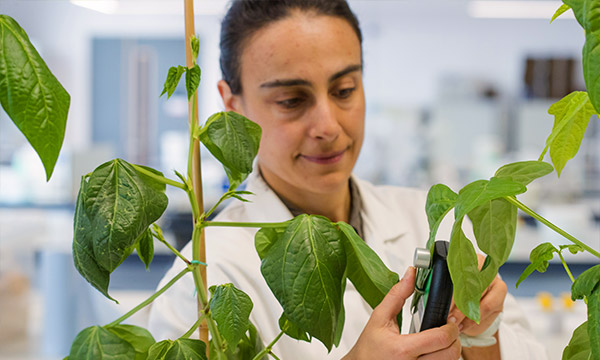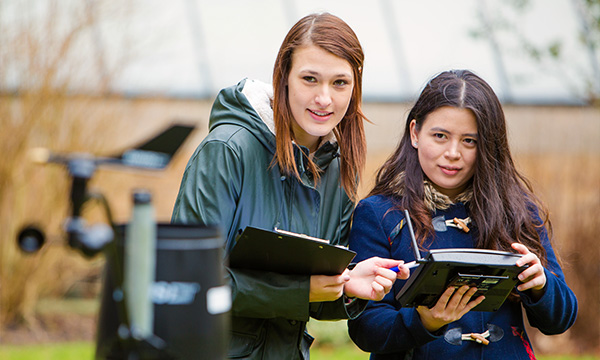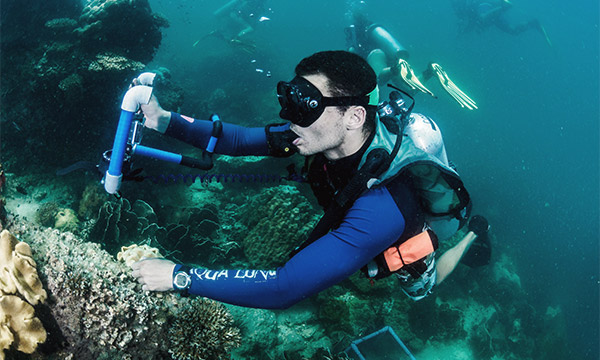Supervisors
Dr Jacob Ainscough, Dr Alexandra Gormally-Sutton, Professor Rebecca Willis
Project Description
This interdisciplinary PhD opportunity will investigate how actors in the UK energy governance system are navigating the dual imperatives of decarbonising at pace whilst securing and maintaining a public mandate. Effective public engagement in climate policy is belatedly being recognised as important for effective policy design, securing a public mandate, and avoiding backlash. Yet this imperative is often set against the need to move ‘at pace’, given the rapidly shrinking window for bringing down global carbon emissions. This poses a dilemma - how to move quickly, without generating a backlash that then slows the transition, as happened previously in the case of onshore wind. This dilemma has been posed afresh in the UK by the Government’s stated intent to achieve ‘clean power’ by 2030. This rush to clean power has been accompanied by a concomitant restructuring of energy governance institutions – including the launch of a new National Energy System Operator and an ongoing government review into the role of Ofgem. Local Authorities are also deeply implicated, as planning rules are re-written with a view to accelerating the transition.
The aim of this PhD will be to undertake one or more local case studies in the North of England, to critically analyse how actors in the governance system (e.g. local authorities, energy companies, regulatory agencies, DNOs, the NESO etc.) are balancing the need for citizen input and support with the renewed push for clean power. The project will have a particular focus on distributional impacts of energy governance changes, and the equity implications of the recent drive for rapid power decarbonisation.
The PhD is affiliated to the JUST (Joined-Up Sustainability Transformations) Centre, a new multi-University consortium bringing together the universities of Lancaster, Manchester, Leeds, Liverpool, and Newcastle, and with partners in the policy, innovation, business, local government, community and voluntary sector. JUST seeks to accelerate a just transition through coordinating research into action at all levels of society, to understand what works, where, why, and for whom. The Centres work is clustered around six themes:
- Principles of Justice
- Governance, Policy and Change
- Methodological Innovation
- Built and Social Infrastructures
- Social and Solidarity Economies
- Democratic Innovations
Beyond the above specification, the project is open for the candidate to shape based on their own interests and disciplinary expertise. Please indicate in the application form which of the JUST Centre themes you would seek to position this project in – this may be more than one.
Opportunities for collaboration
The successful candidate will join the vibrant Climate Citizens research group, a hub of expertise in energy and climate governance. They will also become part of the wider Human Geography Research Group within the Lancaster Environment Centre. The project will benefit from close links with policy organisations including the Department for Energy Security & Net Zero (DESNZ), the Climate Change Committee, and Parliamentary Select Committees. Through the JUST Centre, the successful candidate will become part of network of researchers working towards a just transition across the North of England. Specifically, they will become part of one or more thematic working group of researchers from across the Centre, based on the themes outlined above.
General eligibility criteria
Enthusiasm, independence, self-motivation, curiosity and the ability to communicate to a range of audiences are all distinctly advantageous qualities for a PhD. Applicants would normally be expected to hold a minimum of a UK Honours degree at 2:1 level or equivalent in a relevant degree course. However, applicants who have gained experience in relevant fields through non-traditional routes are strongly encouraged to apply. We particularly welcome applications from Black, Asian or Minority Ethnic (BAME) candidates, candidates who are in the first generation of their family to go to university, candidates who have been in care or who have been a young carer, and candidates from a low-income background.
Project specific criteria
This PhD project is inherently interdisciplinary, and would benefit from incorporating insights from policy and governance literatures; political economy; sociotechnical transitions; the study of institutions, eg new institutionalism; and energy policy. We encourage applications from researchers with experience of these, or similar, disciplines, and/or candidates with experience in policy, governance or business professions.
Studentship funding
Full studentships (UK tuition fees and a stipend of (£20,780 at 2025/26 rates, tax-free)) for UK students for 3.5 years. Unfortunately, funding is not available to cover fees for non-UK students.
Contact
If you would like to have an informal chat about this project or have any question prior to submitting an application, please contact Dr Jake Ainscough at: j.ainscough@lancaster.ac.uk
Dates
Deadline for applications: Midday (12:00), 30 April 2025
Provisional Interview Date: w/c 12 May
Start Date: October 2025
Application process
- Download the LEC Funded PhD Application Form and LEC Funded PhD Reference Form
- Complete the Application Form, renaming the document with your 'Name and Application Form' e.g., Joe Bloggs Application Form.
- Submit the completed Application Form and a CV to j.ainscough@lancaster.ac.uk
- Please note only Word or pdf files are accepted.
- Rename the referee form with your ‘Name and Reference’, e.g., Joe Bloggs Reference. Send the renamed reference form to two referees and request them to forward the referee document to j.ainscough@lancaster.ac.uk
- Please note only Word or pdf files are accepted. It is important that you ensure references are submitted by the closing date or as soon as possible.
- You will receive a generic acknowledgement in receipt of successfully sending the application documents.
- Please note that only applications submitted as per these instructions will be considered.
- Please note that, if English is not your first language, you will be required to provide evidence of your proficiency in English. This evidence is only required if you are offered a funded PhD and is not required as part of this application process.
- Please note that, if you do not hear from us within four weeks of the closing date then you have been unsuccessful on this occasion. If you would like feedback on your application, please contact the supervisors of the project.
Submit all applications and references to this email address: j.ainscough@lancaster.ac.uk
About the Project
Supervisors: Professor Crispin Halsall (LEC), Dr Caroline Weight (Biomedical and Life Sciences) and Dr Naval Singh (Engineering)
The respiratory epithelium maintains a healthy breathing environment but exposure to air pollution increases susceptibility to respiratory infection. Disease caused from absorption of microplastics, nanoplastics and air particulate matter kill over 4.2 million people every year and respiratory tract infections account for nearly 2.5 million deaths globally, of which the bacteria Streptococcus pneumoniae is a leading cause. Here, you will characterise the chemical composition of air pollutants and assess their damage to human cells derived from the nose. You will identify novel molecular and cellular mechanisms which generate protective immunity against respiratory infections through characterising effects of exposure to air pollutants. These data will identify novel molecular signalling pathways that influence generation of protective immunity, critical in therapeutic targets and vaccine design.
This project involves innovative chemical analytical and host-pathogen models, and you will learn a variety of different techniques spanning across Biomedical, Chemical and Engineering disciplines including chromatography, spectroscopy, confocal microscopy and microbiology. You will also receive diverse training in both scientific and career developmental opportunities.
General eligibility criteria: Applicants would normally be expected to hold a minimum of a UK Honours degree at 2:1 level or equivalent in a Chemical/Biology/Biotechnology/Microfluidics or other relevant degree course.
Project specific criteria: The ideal candidate will have an interest in Environmental Science, Chemistry, Bacteriology, Bioengineering, Biomedical Engineering, Biophysics, Biotechnology, Cell Biology, Immunology, Molecular Biology, Tissue Engineering.
Funding
A tax-free stipend will be paid at the standard UKRI rate; £19,237 in 2024/25. This is a fully funded studentship of 3.5 years for UK/Home students.
How to Apply
Interested applicants are welcome to get in touch to learn more about the PhD project. Please contact Dr Caroline Weight for more information.
- Please complete the Natural Sciences Funded PhD Application Form
- Please submit your CV and two references to naturalsci@lancaster.ac.uk as Word or PDF files.
- You will receive a generic acknowledgement in receipt of successfully sending the application documents.
- Please note that only applications submitted as per these instructions will be considered.
- Please note that, if English is not your first language, you will be required to provide evidence of your proficiency in English. This evidence is only required if you are offered a funded PhD and is not required as part of this application process.
- Please note that, if you do not hear from us within four weeks of the closing date then you have been unsuccessful on this occasion. If you would like feedback on your application, please contact the supervisors of the project.
Dates
- Deadline for candidate applications: 28th April 2025
- Provisional Interview Date: May 2025
- Start Date: October 2025
Further Reading
About the Project
Supervisors: Marta Shocket (LEC), Barbara Shih, (Biomedical and Life Sciences) and Alexandre Benedetto (Biomedical and Life Sciences)
The ability of mosquitoes to adapt to climate change is poorly understood, and current models for transmission of mosquito-borne diseases under future climates do not incorporate evolution. This project will use molecular genetics and trait-based modelling approaches to study climate adaptation in Anopheles gambiae, the principal African vector of malaria. This project will provide insight into how mosquitoes might adapt to climate change and help to inform long-term strategies for malaria control.
Aim 1: Generating parameters for evolutionary rescue models
The student will re-analyse existing temperature-dependent life history trait data to generate estimates of selection intensity and phenotypic variance, two factors used by evolutionary rescue models to predict adaptation rates.
Aim 2: Linking climate variables to genetic features from sequencing data
The student will derive genetic variations from whole genome sequencing data and determine if metrics related to climate are associated with greater population-level genetic diversity or specific genetic variants.
General eligibility criteria: Applicants would normally be expected to hold a minimum of a UK Honours degree at 2:1 level or equivalent in a relevant degree course.
Project specific criteria: The ideal candidate will have a strong interest in infectious diseases or thermal adaptation and a background in one of several relevant areas: infectious disease biology, thermal biology, bioinformatics, ecological/evolutionary modelling, or entomology.
Funding
A tax-free stipend will be paid at the standard UKRI rate; £19,237 in 2024/25. This is a fully funded studentship of 3.5 years for UK/Home students.
How to Apply
Interested applicants are welcome to get in touch to learn more about the PhD project. Please contact Marta Shocket for more information.
- Please complete the Natural Sciences Funded PhD Application Form
- Please submit your CV and two references to naturalsci@lancaster.ac.uk as Word or PDF files.
- You will receive a generic acknowledgement in receipt of successfully sending the application documents.
- Please note that only applications submitted as per these instructions will be considered.
- Please note that, if English is not your first language, you will be required to provide evidence of your proficiency in English. This evidence is only required if you are offered a funded PhD and is not required as part of this application process.
- Please note that, if you do not hear from us within four weeks of the closing date then you have been unsuccessful on this occasion. If you would like feedback on your application, please contact the supervisors of the project.
Dates
- Deadline for candidate applications: 28th April 2025
- Provisional Interview Date: May 2025
- Start Date: October 2025
Further Reading
- Couper, L.I., Farner, J.E., Caldwell, J.M., Childs, M.L., Harris, M.J., Kirk, D.G., et al. (2021) How will mosquitoes adapt to climate warming? eLife, 10.
- Mordecai, E. A., Caldwell, J. M., Grossman, M. K., Lippi, C. A., Johnson, L. R., Neira, M., et al. (2019). Thermal biology of mosquito‐borne disease. Ecology letters, 22(10), 1690-1708.
- Li, C., Gao, Y., Zhao, Z., Ma, D., Zhou, R., Wang, J., ... & Liu, Q. (2021). Potential geographical distribution of Anopheles gambiae worldwide under climate change. Journal of Biosafety and Biosecurity, 3(2), 125-130.
- Pastusiak, A., Reddy, M.R., Chen, X. et al. A metagenomic analysis of the phase 2 Anopheles gambiae 1000 genomes dataset reveals a wide diversity of cobionts associated with field collected mosquitoes. Commun Biol 7, 667 (2024).
About the Project
Supervisors: Dr Thomas Jones (Earth Science and Physical Geography, Lancaster Environment Centre) and Dr Maria-Theresia Walach (Space and Planetary Physics Group, Astrophysics, Department of Physics)
Icy bodies within our solar system represent prime candidates for extraterrestrial life. These bodies (e.g., Europa, Enceladus, Triton) have a solid ice shell/surface crust with an underlying liquid ocean that may support life. On all icy worlds, cryo-volcanic eruptions occur when the surface crust is breached, and a jet of water vapour and ice is expelled into the atmosphere. However, we currently lack good physical models of these jets and associated plumes.
In this PhD project you will perform laboratory investigations in the multi-million-pound Geophysical Fluid Dynamics labs at Lancaster. You will use a novel set of analogue experiments scaled for different gravity conditions and different atmospheres to unravel the jet/plume dynamics on different icy bodies and uncover information about the dispersed plumes, which is critical information for space missions. Lastly, you will test these new insights with remotely sensed observations on selected bodies by mapping the plume deposits.
General eligibility criteria: Applicants would normally be expected to hold a minimum of a UK Honours degree at 2:1 level or equivalent in a relevant degree course.
Project specific criteria: The ideal candidate will have an interest in planetary science and conducting laboratory experiments. Applicants may have a range of backgrounds from physics, environmental sciences, maths and engineering. No specific subject knowledge is needed to apply for this PhD, subject training and support will be provided as part of this interdisciplinary project.
Funding
A tax-free stipend will be paid at the standard UKRI rate; £19,237 in 2024/25. This is a fully funded studentship of 3.5 years for UK/Home students.
How to Apply
Interested applicants are welcome to get in touch to learn more about the PhD project. Please contact Dr Thomas Jones for more information.
- Please complete the Natural Sciences Funded PhD Application Form
- Please submit your CV and two references to naturalsci@lancaster.ac.uk as Word or PDF files.
- You will receive a generic acknowledgement in receipt of successfully sending the application documents.
- Please note that only applications submitted as per these instructions will be considered.
- Please note that, if English is not your first language, you will be required to provide evidence of your proficiency in English. This evidence is only required if you are offered a funded PhD and is not required as part of this application process.
- Please note that, if you do not hear from us within four weeks of the closing date then you have been unsuccessful on this occasion. If you would like feedback on your application, please contact the supervisors of the project.
Dates
- Deadline for candidate applications: 28th April 2025
- Provisional Interview Date: May 2025
- Start Date: October 2025
Further Reading
- Hajimirza, S., Jones, T.J., Moreland, W.M., Gonnermann, H.M. and Thordarson, T., 2022. Quantifying the water‐to‐melt mass ratio and its impact on eruption plumes during explosive hydromagmatic eruptions. Geochemistry, Geophysics, Geosystems, 23(5), p.e2021GC010160.
- Soderblom, L.A., Kieffer, S.W., Becker, T.L., Brown, R.H., Cook, A.F., Hansen, C.J., Johnson, T.V., Kirk, R.L. and Shoemaker, E.M., 1990. Triton's geyser-like plumes: Discovery and basic characterization. Science, 250(4979), pp.410-415.
- Manga, M. and Wang, C.Y., 2007. Pressurized oceans and the eruption of liquid water on Europa and Enceladus. Geophysical Research Letters, 34(7).
- Manga, M. and Rudolph, M., 2023. Enceladus erupts. Physics Today, 76(1), pp.62-63.


